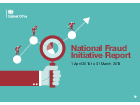Further action to tackle the blight of plastic waste and leave the environment in a better state than we found it has been confirmed by the Prime Minister Theresa May today, as she sets out government plans to consult on extending the 5p plastic bag charge to all retailers, not just big businesses.
The consultation, to be launched later this year, will also explore the possibility of increasing the 5p minimum charge to encourage further behaviour change, potentially doubling it to at least 10p.
The changes will build on the success of the current charge, which has seen plastic bag sales in England’s ‘big seven’ supermarkets drop by 86% and 13 billion plastic bags taken out of circulation in the last two years.
Over three billion bags are estimated to be supplied by small and medium sized enterprises (SMEs) each year. Together these steps will help to cut down the number of unnecessary bags we still use, and which litter our towns and rivers.
Prime Minister Theresa May said:
We have taken huge strides to improve the environment, and the charge on plastic bags in supermarkets and big retailers has demonstrated the difference we can achieve by making small changes to our everyday habits.
I want to leave a greener, healthier environment for future generations, but with plastic in the sea still set to treble we know we need to do more to better protect our oceans and eliminate this harmful waste.
Today’s announcement is the latest step in the government’s ongoing fight against plastic, both at home and abroad.
This includes a world-leading ban on microbeads which harm marine life, and plans to ban the sale of plastic straws, stirrers and cotton buds and introduce a deposit return scheme to drive up the recycling of drinks bottles and cans, subject to consultation.
To spearhead further international collaboration, the Prime Minister also announced over £61 million in UK Aid to boost global research, and help countries stop plastic waste from entering the oceans, at this year’s Commonwealth Heads of Government Meeting (CHOGM).
In a demonstration of ongoing global partnership, the UK will now provide £250,000 to support the design and delivery of a Sustainable Blue Economy Conference, to be hosted by Kenya in Nairobi in November.
The commitment was made by the Prime Minister during her visit to Kenya, and will see the UK bring its expertise to the first ever major oceans conference to be hosted on the African mainland to help control pollution and support green jobs.
In addition the UK can announce that a further six African Commonwealth countries (Seychelles, Mauritius, Sierra Leone, Mozambique, Namibia and the Gambia) have now joined the Commonwealth Clean Oceans Alliance (CCOA), pledging their support and cooperation to end the scourge of plastics in our oceans.
The UK will provide up to an additional £5million in funding to assist CCOA countries seeking to take ambitious action – doubling the amount announced at CHOGM.
Prime Minister Theresa May said:
With over twelve million tonnes of plastic making their way into our oceans each year, plastic pollution is one of the biggest challenges facing the environment today.
But marine litter is a global problem, and cleaning up our seas and oceans requires a global effort.
The UK has been at the forefront of raising the importance of tackling plastics on the international stage, and I am delighted to see more countries across Africa sign up to our ambitious Commonwealth Alliance, and pledge action to reduce it.
Finally, the Prime Minister used her visit to Kenya to set out plans to inspire young people to become leaders in the fight against single-use plastic, with a new Girl Guides and Scouts Plastic Challenge Badge.
Working in partnership with UN Environment, and backed by an initial investment of almost £40,000 from the UK Government, the new badge will first target schools and youth groups in Kenya, then two further countries, helping an estimated 50,000 young people to better understand the importance of reducing plastic consumption and kick-start behaviour change.
The ambition is to then reach the 50 million global membership of the Girl Guiding and Scouts Associations.
Erik Solheim, Head of UN Environment:
The environment has already paid a heavy price for our addiction to single-use plastics. We simply can’t allow that cost to extend to the next generation.
That’s why this support from the UK government to create and launch a plastic pollution badge with the Guides and Scouts is such an inspiring step in the right direction. This global partnership allows us to not just fight plastic pollution on the beaches, but to invest in the young minds that will preserve the planet for future generations to come.
To harness the enthusiasm of its 400,000 members, the government will also work in partnership with the UK Scout Association to create a new Plastics and the Marine Environment Activity Pack to support Scouts in reducing plastic waste through their existing environmental challenge badges.
The UK will also establish an exchange programme that will enable Scouts from the UK and Kenya to learn from one another how important the issue of plastics is in different parts of the world.


